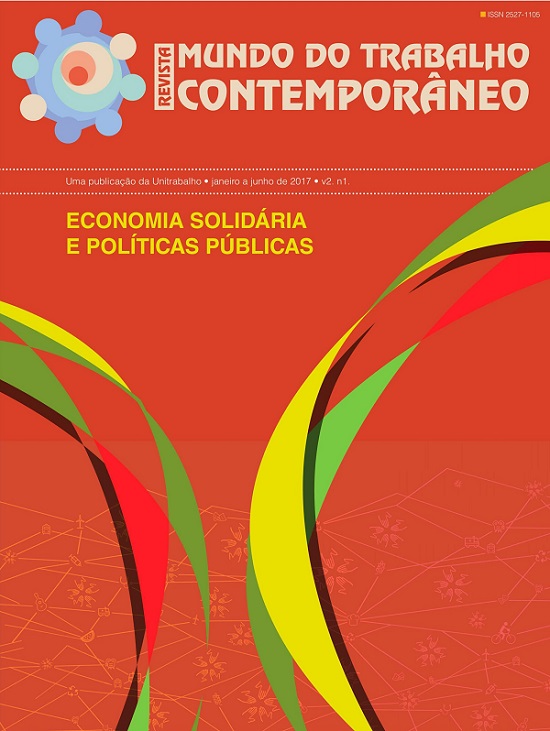De rede à política pública
Ações reticulares no processo sociopolítico de regulação da economia solidária no Brasil
Keywords:
Redes de movimentos sociais; Estado; Regulação; Economia Solidária; Políticas PúblicasAbstract
In this paper I examine the intitutionalisation of Solidarity Economy in Brazil by the social and juridical regulation, in the context between civil society and State. The political
action of Solidarity Economy movement in the relation between civil society and State, the networking composition of this movement and the growing process of intitutionalisation of the Solidarity Economy took me to the main question of this paper: How does the Solidarity Economy movement interact with the State in the process of social and juridical regulation of Solidarity Economy? As an immediate answer, I have observed that the Solidarity Economy movement is a network of networks made by organizations and persons connected mainly to the Catholic Church, to the non-Governmental Organizations (NGOs), to the social movements, to the universities and to the State, that interact and transit from civil society to the State. This transit shows the existence of differences that enables the legal landmark that aims guarantee the right to the associative work and also to consolidate the Solidarity Economy as a public policy. The methodological resourses applied were informal dialogues with the members of the Solidarity Economy movement; semi structured interviews with nacional leaders of the movement and with members of the Federal Legislative and Executive Power; analysis of institutional documents and observations in the arena of debate and deliberations of Solidarity Economy in Brazil.



